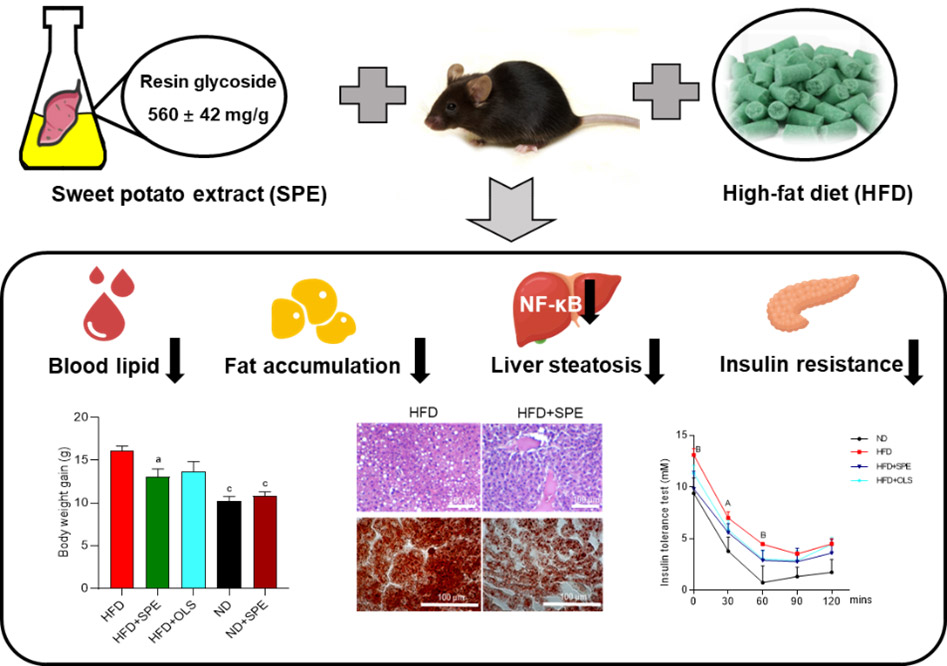Sweetpotato fat loss pills
Prolonged consumption of excessive calories often leads to obesity. In recent years, the global prevalence of obesity continues to pose significant risks for the development of various chronic diseases. Individuals affected by obesity often struggle with adhering strictly to dietary controls or exercise regimens while pharmaceutical interventions may cause severe adverse reactions, hence highlighting great prospects offered by natural anti-obesity agents as compared to these conventional approaches.

The research team of Associate Investigator Dr Liu Tiange from the Biomedical and Health Technology Research Platform of NUSRI-Suzhou led by the Chief Principal Investigator Professor Huang Dejian, is collaborating with Xuzhou Institute of Agricultural Sciences in Jiangsu Xuhuai District, and Dr Song Zhixuan, the co-founder of food start-up Liloss supported by NUS GRIP. Their collective commitment involves identifying superior botanical germplasm resources endowed with distinctive functionalities but also producing natural plant-derived extracts with potent anti-obesity activities. Currently, they have successfully isolated a promising slimming agent – sweetpotato resin glycoside, from the by-products generated during sweetpotato cultivation and processing using a patented technology. This substance exhibits a strong inhibitory activity against pancreatic lipase, good safety and stability, as well as a pleasant smell. It can effectively alleviate the body weight gain, blood lipid elevation, hepatic lipid deposition and gut microbiome imbalance caused by high-fat diet when taken as a dietary supplement before meals.
Prof Huang's team has been dedicated to developing zero-waste processing technologies for agricultural by-products. To date, the team has not only successfully developed sweetpotato resin glycoside with anti-obesity effects but also recovered protein and dietary fibre from sweetpotato vines and leaves thereby providing new solutions to the reutilisation and valorisation of resource waste in the sweetpotato industry. The reclaimed bioactive ingredients have great potential to regenerate value-added bio-products in the fields of food and nutraceutical with considerable market prospects.




